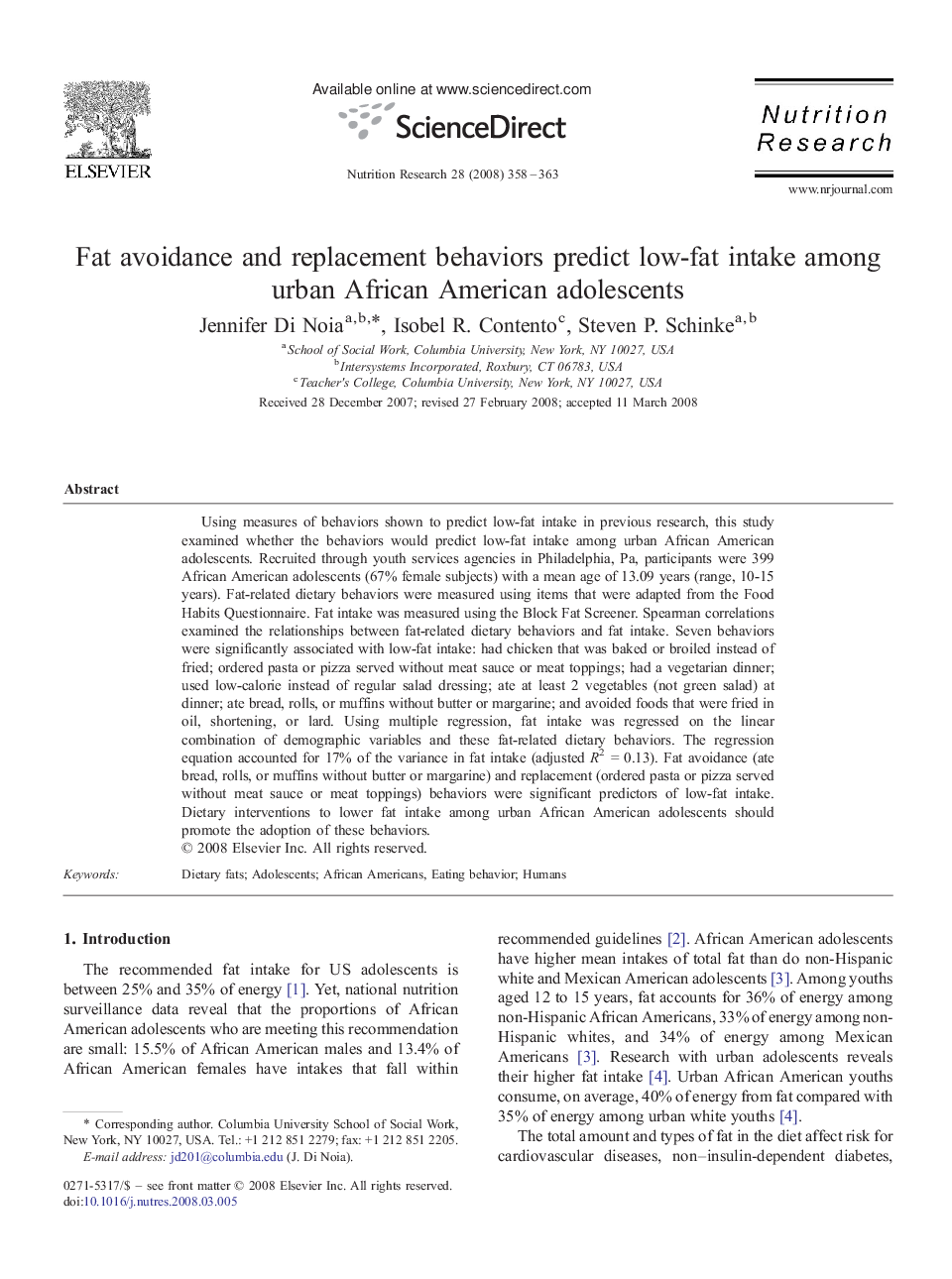| Article ID | Journal | Published Year | Pages | File Type |
|---|---|---|---|---|
| 2809489 | Nutrition Research | 2008 | 6 Pages |
Using measures of behaviors shown to predict low-fat intake in previous research, this study examined whether the behaviors would predict low-fat intake among urban African American adolescents. Recruited through youth services agencies in Philadelphia, Pa, participants were 399 African American adolescents (67% female subjects) with a mean age of 13.09 years (range, 10-15 years). Fat-related dietary behaviors were measured using items that were adapted from the Food Habits Questionnaire. Fat intake was measured using the Block Fat Screener. Spearman correlations examined the relationships between fat-related dietary behaviors and fat intake. Seven behaviors were significantly associated with low-fat intake: had chicken that was baked or broiled instead of fried; ordered pasta or pizza served without meat sauce or meat toppings; had a vegetarian dinner; used low-calorie instead of regular salad dressing; ate at least 2 vegetables (not green salad) at dinner; ate bread, rolls, or muffins without butter or margarine; and avoided foods that were fried in oil, shortening, or lard. Using multiple regression, fat intake was regressed on the linear combination of demographic variables and these fat-related dietary behaviors. The regression equation accounted for 17% of the variance in fat intake (adjusted R2 = 0.13). Fat avoidance (ate bread, rolls, or muffins without butter or margarine) and replacement (ordered pasta or pizza served without meat sauce or meat toppings) behaviors were significant predictors of low-fat intake. Dietary interventions to lower fat intake among urban African American adolescents should promote the adoption of these behaviors.
